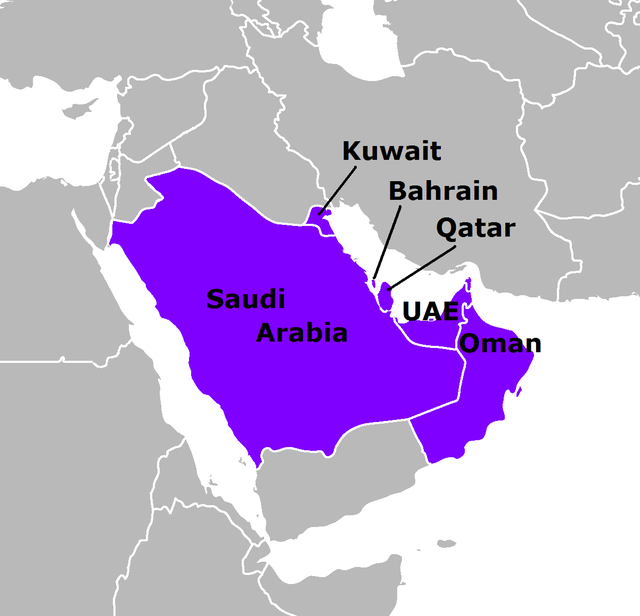August 08, 2014

The United Arab Emirates instituted a military draft last month, reflecting partly a fear of Iran, but also a fear that the United States will no longer protect it if Iran should attack.
The fear that the United States is shifting policy under Barack Obama and may soon be allied with Iran is growing rapidly within the Arab world and especially among the Arabs of the Persian Gulf countries.
This view may seem nonsensical in the West, but it has become part and parcel of political discussions in the Persian Gulf region since Iran and the Big Six reached an interim nuclear agreement last November and then started talks aimed at ending the long-running nuclear dispute.
The new draft law requires all male citizens of the UAE to enlist at some point between the ages of 18 and 30. The UAE’s armed forces, with roughly 51,000 members, have traditionally been all-volunteer.
The doubts about he United States actually began earlier.
Many Persian Gulf states, particularly Saudi Arabia, were highly critical of Washington’s decision to sidestep military intervention in Syria last year despite evidence that its regime had used chemical weapons on civilians. Obama first threatened military action to destroy Syria’s chemical weapons stocks, but then withdrew that threat when Moscow negotiated an agreement with Syria under which Syria has now turned its chemical weapons over to the United States to be destroyed.
In the West, that was seen as a better way to achieve the goal. But Persian Gulf Arabs commonly blame American inaction, in part, for the rise of Islamic State (IS) militants in both Syria and Iraq. And at the top of the IS agenda—far above confronting Israel or the United States—is the goal of overthrowing Arab monarchs. (Also at the top of the agenda is smashing Shiism.)
“For all their talk of ‘red lines,’ when it counted, our partners have seemed all too ready to concede our safety and risk our region’s stability,” wrote Saudi Arabia’s ambassador to the United Kingdom, Mohammed bin Nawaf bin Abdulaziz al-Saud, in an op-ed published in The New York Times in December.
Regional nerves were further strained in June when vast Western media speculation talked of the US lining up with Iran to contain the Islamic State. Washington repeatedly denied ever thinking of allying with Iran, but the continued media prattle has shaken nerves among Persian Gulf Arabs.
The US has security agreements with all six Persian Gulf Arab states and has forces stationed in all but Saudi Arabia, including large numbers in Kuwait, Qatar and Bahrain.
Many analysts say the Emirates’ new draft is one more sign of growing doubts over US security promises. Qatar introduced a draft last year, and Kuwait is reported to be considering reinstatement.
“Part of it, I think, has to do with America’s reluctance to engage in securing the region,” Ahmed al-Attar, assistant director of defense and security at the Delma Institute in Abu Dhabi, told the Christian Science Monitor. “In the end, these security cooperation agreements are things that will most probably be followed through, but the problem here is that the US has proven to the regional community that it is not as committed as people once thought it was.”
In Washington, analysts generally shake their heads at such talk. There is no doubt in Washington that, if Iran ever attacked any of the Arab states across the Persian Gulf, that would launch an American war with Iran. “The United States couldn’t sit out such an attack,” one told the Iran Times. “Its interests are at stake. Such talk in the Gulf is crazy.”
Few think the new UAE draft will do much to boost the country’s defense capabilities. High school graduates will serve nine months and dropouts two years. In a modern hi-tech military, US officials say, nine months is not enough time in which to learn much and high school dropouts are virtually useless for most jobs.
“It makes absolutely no difference to the security of the UAE to have a bunch of Emiratis running around the desert firing off weapons for fun,” Michael Stevens, deputy director of the Royal United Services Institute in Qatar, a defense think-tank, told the Monitor.
“These guys aren’t Israel, they don’t have the domestic need or the drive for conscription to be part of a deterrence posture.” He argues the main reason for the draft is “more social than strategic.”
The UAE is well known for its cradle-to-grave welfare system and many younger citizens have taken advantage of government handouts or their own family wealth to live comfortably and remain unemployed. Now, they will have to earn their citizenship by giving something back.
“Rather than ask people to pay taxes, just ask them to do more. It’s much better and it works more positively with the local mindset,” said Stevens.
Theodore Karasik, director of research and consultancy at the Dubai-based Institute for Near East and Gulf Military Analysts, told the Monitor the military training is also a way to prepare Emiratis for professional jobs that are currently filled by foreigners. Ninety percent of the UAE’s work force is made up of expatriates. Even the country’s armed forces are said to include many people of foreign origin.
“[The draft] has to do with the training and opening doors for young people to get involved in knowledge management and in mechanical engineering and aerospace in order to populate many of the emerging industries,” said Karasik.